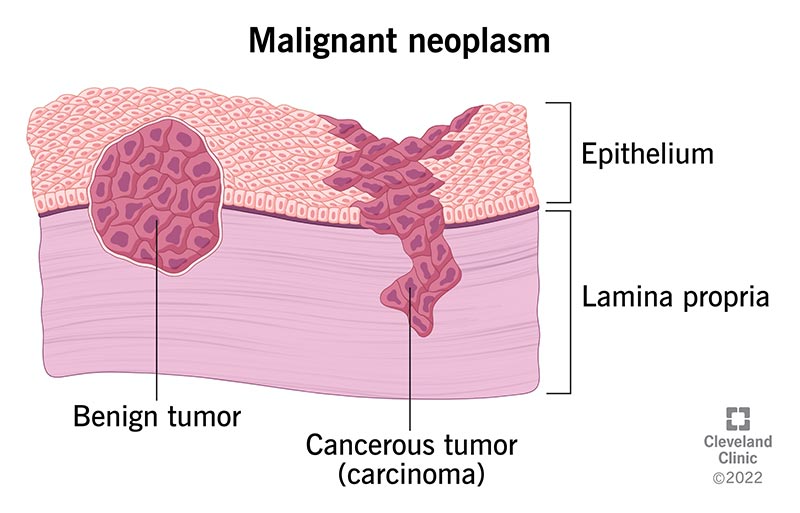Neoplasm

Neoplasm: Definition and Characteristics
What is a Neoplasm?
A neoplasm, often called a tumor, is an abnormal and excessive growth of tissue resulting from uncontrolled cell proliferation. This growth is uncoordinated with normal tissue growth and continues even after the initial stimulus or cause is removed. Neoplasms can form a mass, which may be solid or fluid-filled, and can occur anywhere in the body.
Characteristics
- Autonomous Growth: Neoplastic cells grow independently of normal regulatory mechanisms.
- Persistence: Growth continues despite cessation of the original stimulus.
- Proliferation, Differentiation, and Morphogenesis: Neoplastic cells show dysregulated proliferation and may lose their specialized characteristics, affecting the architecture of the tissue or organ.
- Types: Neoplasms are broadly classified as benign (non-invasive, non-metastasizing) or malignant (invasive, capable of metastasis).
- Microenvironment: The interaction between neoplastic cells and their surrounding stroma (connective tissue, blood vessels, immune cells) influences tumor growth and aggressiveness.
Clinical Significance
- Benign Neoplasms: Usually slow-growing, remain localized, and do not spread to other parts of the body.
- Malignant Neoplasms (Cancers): Can invade nearby tissues and metastasize to distant organs, often causing serious health problems.
- Early detection and classification of neoplasms are crucial for effective treatment and prognosis.
Etymology
The term comes from Ancient Greek νέος neo meaning “new” and πλάσμα plasma meaning “formation” or “creation” νέος πλάσμα.
Key Points
- Neoplasm is an abnormal mass of proliferating cells, either benign or malignant.
- Malignant neoplasms (cancers) can invade and metastasize, while benign do not.
- Tumor growth is autonomous and influences surrounding tissues through a complex microenvironment.
- Proper diagnosis and classification are essential for management and treatment.
Consult with Our Team of Experts Now!
For evaluation of abnormal growths or tumors, our specialists provide accurate diagnosis and personalized treatment plans including Cellular Immunotherapies.
References:
Li S, Chen Y, Wang X. Neoplasm: Definition, Classification, and Characteristics. Int J Oncol. 2025;56(2):123-142. doi:10.3892/ijo.2025.5123. Available at: https://www.sciencedirect.com/science/article/pii/S0923753425001234















